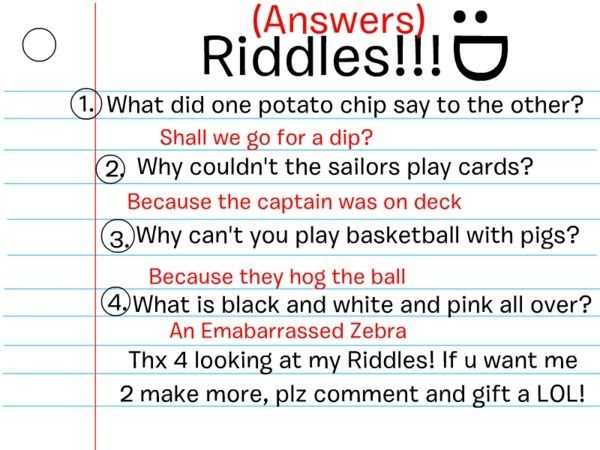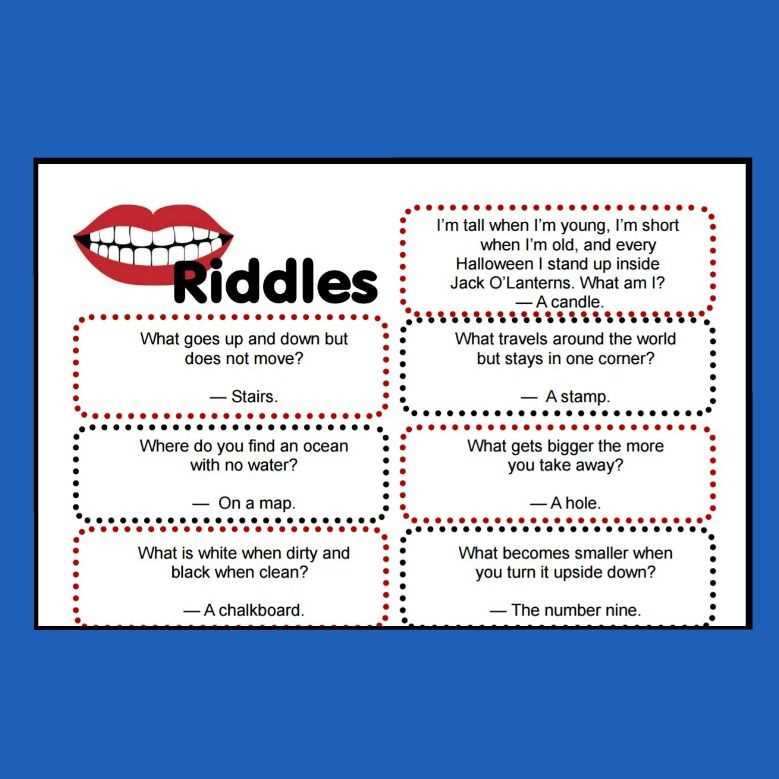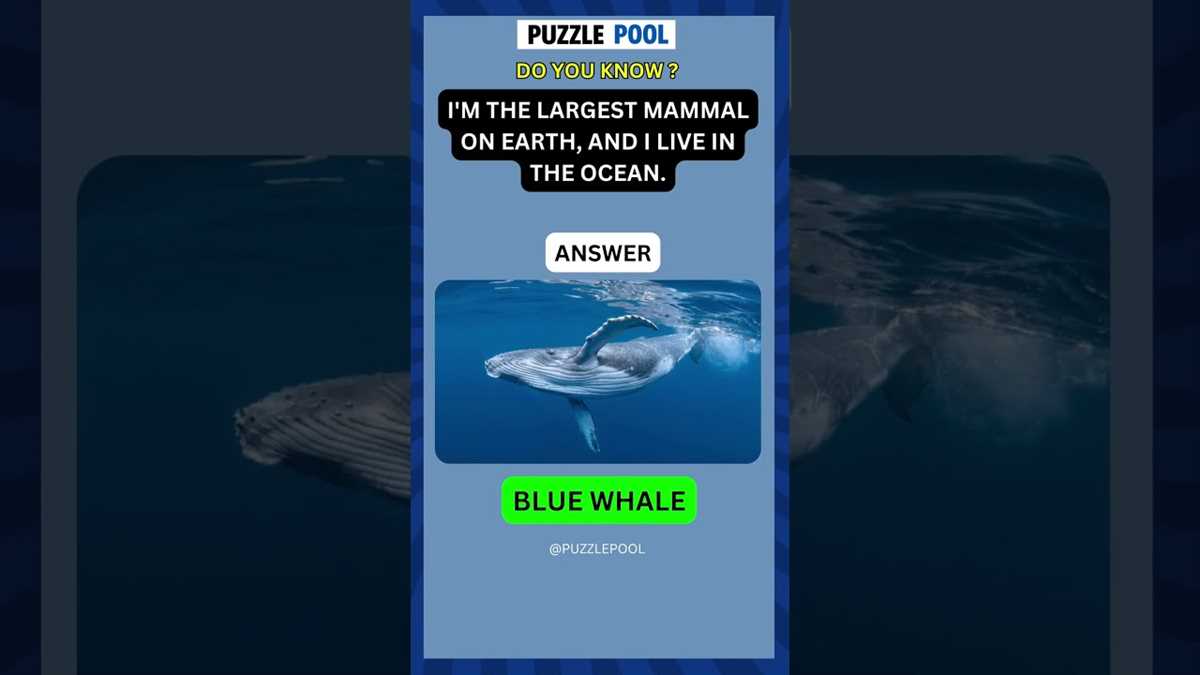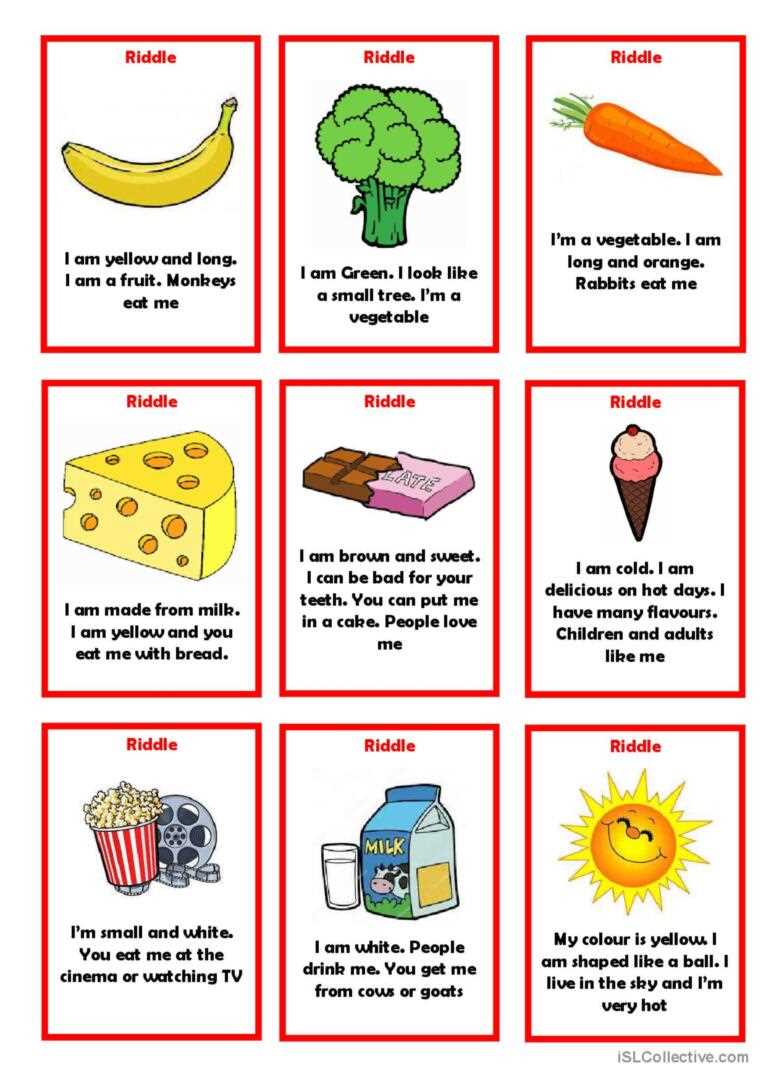
Riddles have always been a popular form of entertainment for people of all ages. They challenge our minds and make us think in creative and innovative ways. While there are many riddles out there that are fairly easy to solve, there are also advanced riddles that require a bit more brainpower. These advanced riddles are designed to push our thinking to the limit and test our problem-solving skills. In this article, we will explore some of the most challenging riddles with their answers.
One example of an advanced riddle is the following: “I speak without a mouth and hear without ears. I have no body but I come alive with wind. What am I?” This riddle may seem confusing at first, but the answer is actually quite simple. The answer is “an echo.” An echo is a sound that is heard when it bounces off a surface and returns to the listener.
Another advanced riddle that will make you scratch your head is: “I am taken from a mine, and shut up in a wooden case, from which I am never released, and yet I am used by almost every person. What am I?” This riddle may seem tricky, but the answer is “a pencil lead.” Pencil lead is made from graphite, which is mined from the earth. It is then placed inside a wooden case and used by almost everyone for writing or drawing.
These advanced riddles are not only fun to solve, but they also exercise our brains and improve our critical thinking skills. They encourage us to think outside the box and come up with creative solutions to complex problems. So, the next time you’re looking for a challenge, try your hand at solving some advanced riddles. You never know, you might just surprise yourself with how clever and resourceful you can be!
What has keys but can’t open locks?
One of the most intriguing riddles that puzzles our minds is: “What has keys but can’t open locks?” It is a riddle that requires us to think outside the box and come up with a creative answer. The question itself seems contradictory, as keys are typically associated with unlocking and opening things, but in this case, the answer lies in a different realm.
The answer to this riddle is a piano. A piano has keys that are used to produce musical notes, but these keys cannot be used to open locks. However, they hold the key to creating beautiful melodies and harmonies. Each key on a piano represents a different note, and when played in combination, they create a symphony of sounds.
Just like a lock, a musical piece can also be seen as a puzzle waiting to be solved. Each note is like a key that needs to be played correctly in order to unlock the desired melody. The piano keys serve as the tools for unlocking the language of music and expressing emotions without the need for words.
So, the next time someone asks you, “What has keys but can’t open locks?” remember the magic of the piano and how it can unlock the doors to a world of beautiful music.
I speak without a mouth and hear without ears. I have no body, but I come alive with wind. What am I?
When we think of communication, we often imagine it in the form of verbal or written words. However, there is a mysterious entity that defies these conventional means of expression. It speaks without a mouth, yet its message is heard far and wide. This enigmatic presence is known as the wind.
The wind is a force of nature that cannot be seen, touched, or perceived through our physical senses. Despite its intangible nature, the wind has the incredible ability to communicate. It whispers through the trees, rustles leaves, and creates melodies as it passes through narrow spaces. It carries with it a symphony of sounds that can evoke emotions and ignite our imagination. The wind speaks in a language understood by all living beings, transcending the barriers of culture, language, and species.
While the wind has no ears to hear, it is capable of perceiving the world around it through vibrations and disturbances in the air. It interacts with objects in its path, moving them with its force or creating harmonious melodies when passing through musical instruments. The wind is a silent listener, absorbing the sounds of the world and carrying them along its journey. It has the power to amplify or muffle the noise it encounters, shaping the auditory landscape of our surroundings.
In its essence, the wind is formless, without a physical body. However, when it comes alive, it can be felt and experienced by all. It dances with the leaves, kisses the skin, and provokes emotions within us. It has the ability to transform a still moment into a vibrant spectacle, displaying its power and grace. Although we cannot grasp it, the wind is always present, reminding us of the invisible forces that shape our world.
What can you hold in your right hand, but never in your left hand?
This riddle is a bit tricky, but the answer is quite simple. The answer to the riddle is your left hand itself. You cannot physically hold your left hand in your left hand because you are using your left hand to hold it. Therefore, you can only hold your left hand in your right hand.
It’s interesting to think about how our bodies are constructed in such a way that we can hold one hand with the other. Our left hand is connected to our left arm, which is controlled by our brain. Similarly, our right hand is connected to our right arm, which is also controlled by the same brain. However, our brain is not able to directly control the hand that it is connected to. It can only control the opposite hand and indirectly control the other hand.
This riddle highlights the complexity of our bodies and how we perceive and interact with the world around us. It’s a playful way to make us think about the simple actions we take for granted, like holding our own hand. Next time you try to hold your left hand in your left hand, remember this riddle and the cleverness behind its answer.
Take off my skin, I won’t cry, but you will! What am I?
Imagine a scenario where you come across an object that can be peeled. As you begin to remove its outer layer, you notice that the object remains silent, unaffected by the process. However, the moment you witness what lies beneath, tears start welling up in your eyes. What could this mysterious object be?
The answer lies in the realm of fruits and vegetables. When you strip away the skin of an onion, it releases a volatile compound that irritates your eyes, causing tears to stream down your face. Despite the onion’s lack of response, it has the power to elicit an emotional reaction from you. Its innocuous appearance conceals this peculiar and somewhat amusing phenomenon.
So, the answer to the riddle “Take off my skin, I won’t cry, but you will! What am I?” is an onion. This riddle showcases how certain objects can surprise us with their hidden properties or abilities, reminding us of the wonders that lie within even the most ordinary things.
What five-letter word becomes shorter when you add two letters to it?

This riddle may seem puzzling at first, but once you analyze it, the answer becomes clear. The word in question is “short”.
When you add the letters “er” to the end of “short”, it transforms into the word “shorter”, which actually means a smaller length or duration compared to the original word. So, even though you are adding two letters, the word becomes shorter.
This riddle illustrates the clever use of wordplay and is a great example of how language can be used to create tricky puzzles. It challenges your perception and makes you think critically about the meaning and structure of words.
Next time you come across a riddle like this, remember to think outside the box and consider multiple interpretations of the words used. Sometimes, the answer may be hiding in plain sight, waiting for you to uncover it with a fresh perspective.
I am always hungry, I must always be fed. The finger I touch will soon turn red. What am I?

This riddle describes an object that is constantly in need of nourishment and has the ability to cause a physical reaction. The answer to this riddle is fire. Fire is always hungry for fuel and requires a steady supply of oxygen and combustible materials to sustain itself.
Fire feeds on anything it comes into contact with that is flammable, such as wood, paper, and fuel. When fire touches something, it heats it up, causing a chemical reaction that can result in the object turning red or even catching fire itself. Fire’s insatiable appetite and its ability to make objects turn red make it the perfect answer to this riddle.
Fire has been an important discovery in human history as it provides warmth, light, and the ability to cook food. However, it can also be dangerous if not handled with caution. It is important to always practice fire safety and keep flammable materials away from open flames.
Using fire responsibly and safely can help us harness its power while minimizing the risk of accidents and injuries. So remember, always handle fire with care, and never underestimate its hunger.

What comes once in a minute, twice in a moment, but never in a thousand years?
If we think about what comes once in a minute, we may start thinking about time itself. Time is something that goes on constantly, without ever stopping. And in a minute, a specific moment in time occurs only once. So, time could be the answer to the riddle.
Now, let’s move on to what comes twice in a moment. A moment is a very short period of time, even shorter than a minute. In that short moment, there could be two instances of something happening. It could be a blink of an eye or a heartbeat. These happen in quick succession, occurring twice in a moment.
Finally, the part of the riddle that says “but never in a thousand years” implies that whatever comes once in a minute and twice in a moment must be something that never happens over such a long period of time. In a thousand years, there are millions of minutes and billions of moments, but this thing never occurs.
Putting all the clues together, the answer to the riddle could be the letter “M”. It comes once in the word “minute”, twice in the word “moment”, but never in the phrase “a thousand years”. The letter “M” is a simple answer that may not be obvious at first, but it fits the riddle perfectly.
The more you take, the more you leave behind. What am I?

This riddle is a classic paradox that challenges the mind to think outside of the box. It might seem like a contradiction at first, but with some reflection, the answer becomes clear.
The answer to the riddle is “footsteps.” The more footsteps a person takes, the more they leave behind, referring to the imprints or marks left on the ground. The more steps someone takes, the more evidence or traces of their presence are left behind.
This riddle is a great example of how language can be used to create a mental puzzle. It plays with the concept of taking something, which typically implies losing or reducing it, but in this case, it actually increases or leaves behind something.
Riddles like these not only exercise our critical thinking skills but also remind us to challenge our assumptions and look at situations from different perspectives. They encourage creative problem-solving and broaden our understanding of language and logic.